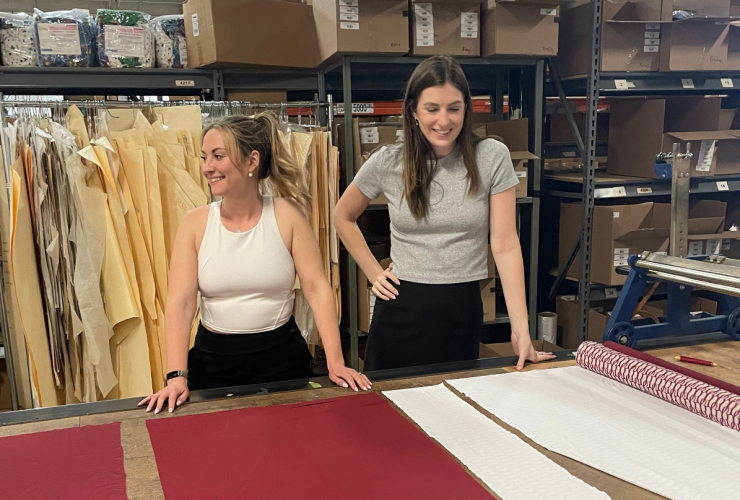These in-their-own-words pieces are told to Patricia Lane and co-edited with input from the interviewee for the purpose of brevity.
Ziya Merchant’s multi-school campaign is using plastic water bottles to raise awareness about climate justice.
Inspired by Mireta Strandberg-Salmon's campaigns to end bottled water sales at her own high school and at Simon Fraser University, 17-year-old Ziya founded Phasing Out Plastic Bottles (POPB), which in 2022-23 had 15-plus chapters in schools across British Columbia’s Lower Mainland and the United States. This year, POPB has interest from schools in other parts of the U.S. and throughout Canada.
Ziya is a 2023 recipient of the Youth Climate Activist Award from the BC Institute for Sustainability, Education and Action.

Tell us about Phasing Out Plastic Bottles.
We meet with other high school students and help them analyze where they can have the most impact in the drive to eliminate the use of plastic bottles. Some schools do not have water fountains, so that has to be the place to start. In other cases, schools receive funding from selling plastic water bottles and have contracts with vending machine companies. Others may already have stopped sales and are ready to begin raising awareness about the social justice aspects of bottled water.
In every case, we provide social media-friendly materials to educate other students about the reality that bottled water is often extracted from impoverished communities in India or Indigenous communities in Canada and sold back to the people who live there at inflated prices. Plastic water bottles are shipped to the Global South, where they join other plastics in creating toxic waste. Too often, the commercialization of water threatens the clean water supply for Indigenous communities in B.C.’s Interior. Throughout the year, we encourage students to fundraise for Water First, helping to educate about the lack of clean water for so many Indigenous people in this country,
Unhoused people live with water precarity. If we are to eliminate plastic bottles, we have to provide an alternative. For that reason, in the early hot days of 2023’s summer, students from POPB teamed up with students from On The Streets of Vancity to collect reusable water bottles left unclaimed at school and community events, wash and sterilize them and deliver them, filled with ice water, to unhoused people in Vancouver’s Downtown Eastside.
What other projects are you involved with?
I have always been very passionate about food security and, of course, water accessibility is a crucial component. I recently approached Simon Fraser Prof. Tammara Soma, the co-founder of the Food Systems Lab, and I am now researching ways to improve food literacy in communities in five different countries.

What do you do for fun?
I love debating and started my school’s debate team.
Tell us about your background.
I came to Canada when I was three years old with my parents from Pune, India. Growing up, I was not outspoken because I wasn't fully confident in my English. Despite not having access to many resources, my parents encouraged me to participate in activities like public speaking, poetry writing or math competitions. My mom read me the signs on public transit and taught me multiplication when we shopped for groceries. Despite working long hours, my dad would spend time teaching me math, taking me to play sports and finding opportunities for me. I often didn't do well in many of the activities I was involved in, but they encouraged me to learn to be a better version of myself rather than just the best. I did get better and I learned to enjoy learning. I don't have to be the best to feel satisfied. I just have to try.
In Grade 8, I participated in a regional school debate. My team did not do well but when I got to Grade 10 and found out there was no debating club at my new school, I started one so I could improve my debating skills. Last year, we reached the national quarter-finals. Sometimes practise and commitment and a willingness to learn can pay off.
We always had a small garden and no food is wasted. My mother brings her own containers when we have takeout and takes the time to make sure we recycle carefully and mindfully. She understands that the health of our planet is our health, too.

What makes your work on climate and environment hard?
While the little things we do really do matter, we cannot have the change we need without widespread systems change. It is hard to see leaders so resistant to change when we young people are doing so much. That is why I am going to study business and sustainability at university. We have to get corporations on board.
What gives you hope?
There are so many young people involved in so much using all their talents and skills. We are unstoppable.

What would you like to say to other young people?
Don’t give up. Connect with others. You will feel better and be able to see more of a difference.
How about older readers?
We are passionate, but you have the power. Use it to support us.
In most countries, bottled
In most countries, bottled water is just a scam. You're paying for worse water than you'd get from a tap in the first place.
Mind you, I don't like drinking water in the first place. But I still don't buy things in plastic bottles; I rely on a large thermos of chocolate milk.






Comments